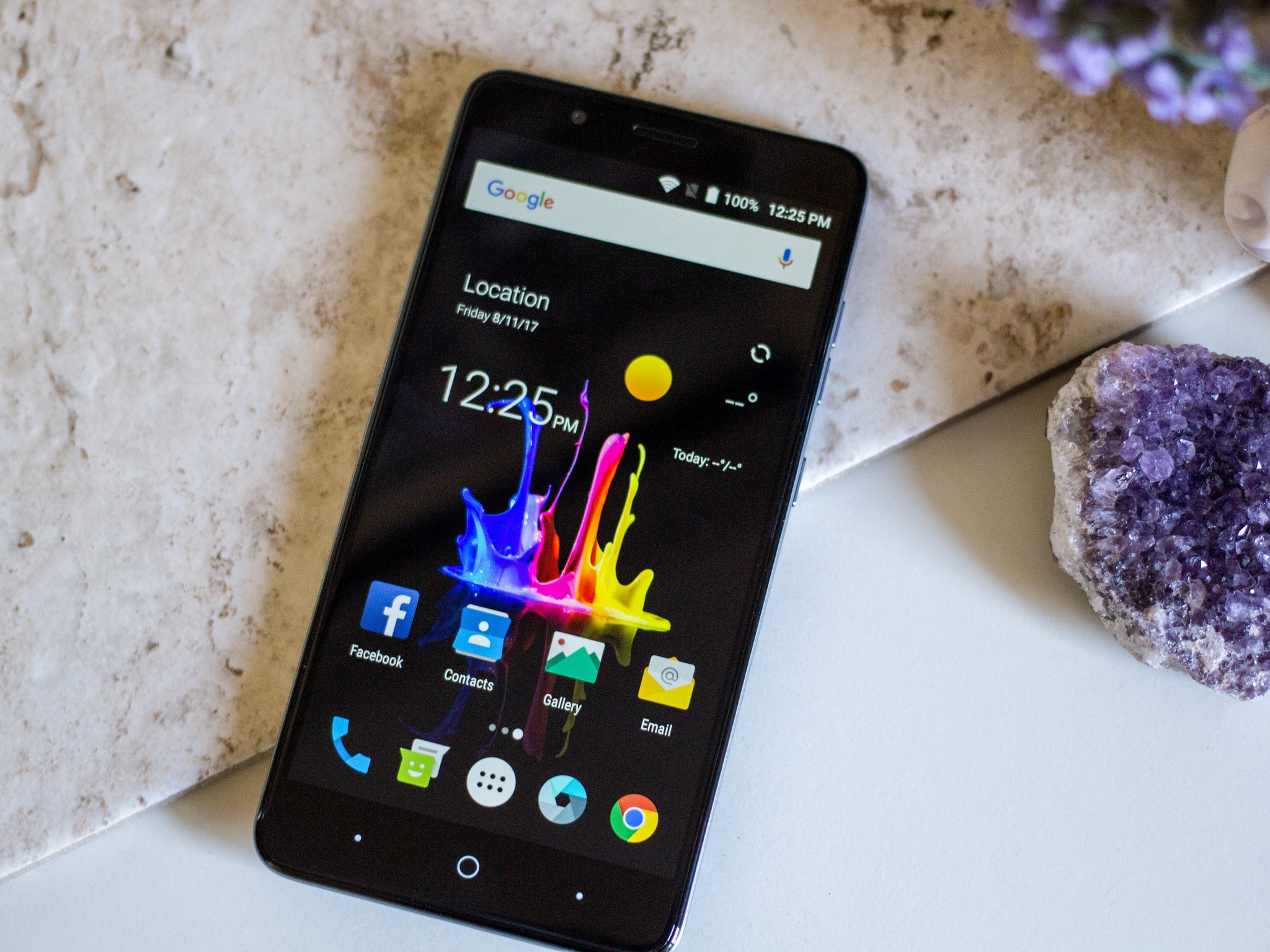ZTE no longer has a viable smartphone program thanks to U.S. sanctions, but was it a fair decision?
The U.S. government has basically killed ZTE's smartphone business by blocking access to Google's services. There are a lot of headlines that talk about the ban in different ways, but when you get right down to the nitty-gritty that is what you are left with.
The short version is this: ZTE was caught (and admitted to) selling mobile equipment to Iran and North Korea, which are two of the very few countries that the U.S. considers the "enemy," and a company isn't allowed to do business with either if it wants to do business with U.S. based companies. A punishment was set for this, which ZTE agreed to, and the U.S. says that ZTE did not adhere to it so the Secretary of Commerce issued a denial order against the company that says in part:
[ZTE] may not, directly or indirectly, participate in any way in any transaction involving any commodity, software or technology exported or to be exported from the United States.
The long version of the events is an interesting read and I don't want to downplay what ZTE did here. Whether you like the U.S. position or not, ZTE admittedly sold goods to the two countries knowing what the outcome could be. Whether or not the company followed the original order that levied a $1.19 billion fine, directed the company to fire four executives and to dole out a reprimand to 35 other employees is in question as ZTE claims it did what was required while the U.S. says it did not, but there's no doubt that ZTE did what it did knowing what the outcome could be. And that's what it ended up being — ZTE can't use software exported from the U.S.
ZTE can use Android but can't use the software that makes people want Android.
That doesn't mean the company can't use Android. but it does mean it can't use the part of Android that makes people in the west want to buy a phone. Android is just a bunch of source code that anyone can download and build into their operating system. The final product will work almost the same as a phone you can buy anywhere else, but will not have any of Google's apps or services, including the Play Store. Millions of phones like this are sold every year in China where vendors have developed their own app store(s) so it is a viable alternative, but almost zero phones like this are sold in the U.S. and Western Europe. ZTE will either have to try and compete with established brands in China or try to build their own app store for Europe, neither of which seems very likely. In either case it won't be able to sell a phone or anything else in the U.S.
All of this sounds very draconian when you consider the U.S. position. And it's easy to compare this to the recent ban on Huawei phones, though they two instances are very different. Huawei is accused of being a shell company of the Chinese government and U.S. intelligence services say using their products — including smartphones — is a danger to consumers and to government interests. Huawei vehemently denies these claims. ZTE was actually charged with, and pleaded guilty to, what amounts to aiding and abetting an enemy of the state then failed to follow through with the punishment it was given. The fact that both companies are from China and also big players when it comes to network infrastructure equipment and 5G technology adoption shouldn't be ignored, but "officially" has nothing to do with either companies treatment by the U.S.
ZTE claims it followed the original U.S. order but the Dept. of Commerce says it did not.
What the Secretary of Commerce did to ZTE is harsh. I don't think anyone can argue that it's not, because it will likely end the company's smartphone business. But was is fair? Originally, ZTE was fined, ordered to fire four executives and reprimand 35 additional employees. The U.S. claims that ZTE did not sufficiently reprimand those 35 employees though it did pay the $1.19 billion fine and fire the company executives. ZTE disagrees, but even if the U.S. is correct with the assertion that ZTE did not follow through, not allowing the company to engage in commerce with U.S. software companies is not something to be taken lightly. Nor is ZTE's original sin of doing business with Iran and North Korea.
We all have our own opinion here, both on U.S. policy towards Iran and North Korea as well as the ruling against ZTE. I think ZTE got exactly what it deserved.
I have no position on whether Iran and North Korea are enemy states. I hope that the U.S. wouldn't withhold any humanitarian aid should the need arise, but I can't have any opinion on relations with either country because I don't have access to any of the reasons why, outside of speculation. None of us regular folks do. I do know enough to say that anyone arguing differently is either blowing smoke or subject to court martial so there is no way to discuss whether the U.S. is taking the correct position against Iran and North Korea without blowing my own smoke.
Phones are simple products but network infrastructure equipment can be used as a machine of war.
I do think that selling simple technology products like a smartphone (yes, a smartphone is simple technology that anyone can build) isn't something that the U.S. should worry about but network infrastructure equipment is a different story. It's more like selling equipment to manufacture goods that could be used to commit acts of war because cyber-terrorism and crime is a real thing. Given that Iran and North Korea are considered hostile, the position that they shouldn't be supplied with tools to further any hostile actions makes sense.
ZTE dodged a bullet in 2017 when the company was originally given its penalties for its transgressions. By not following through with enough publicity to erase any doubt about reprimanding its employees, ZTE is now being used as an example of what happens when you cross the current administration. You can argue that this is Trump doing ridiculous Trump things again all you like, but this is what being tough looks like. ZTE knew that it would be subject to this if it didn't satisfy the original U.S. demands. And sometimes being tough isn't such a bad thing. I'm actually in agreement this time, considering all the things I don't know and taking them at face value.
But none of that matters. ZTE may or may not deserve the treatment it received, but it knew what can happen when it sold to Iran and North Korea. And it did it anyway.
from Android Central - Android Forums, News, Reviews, Help and Android Wallpapers https://ift.tt/2vDRTlE
via IFTTT


No comments:
Post a Comment